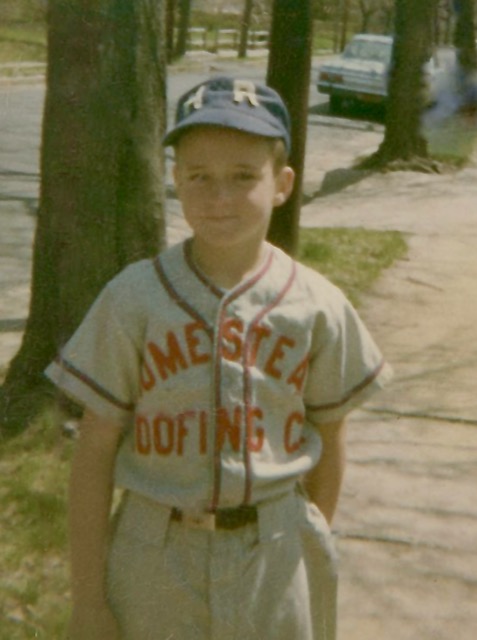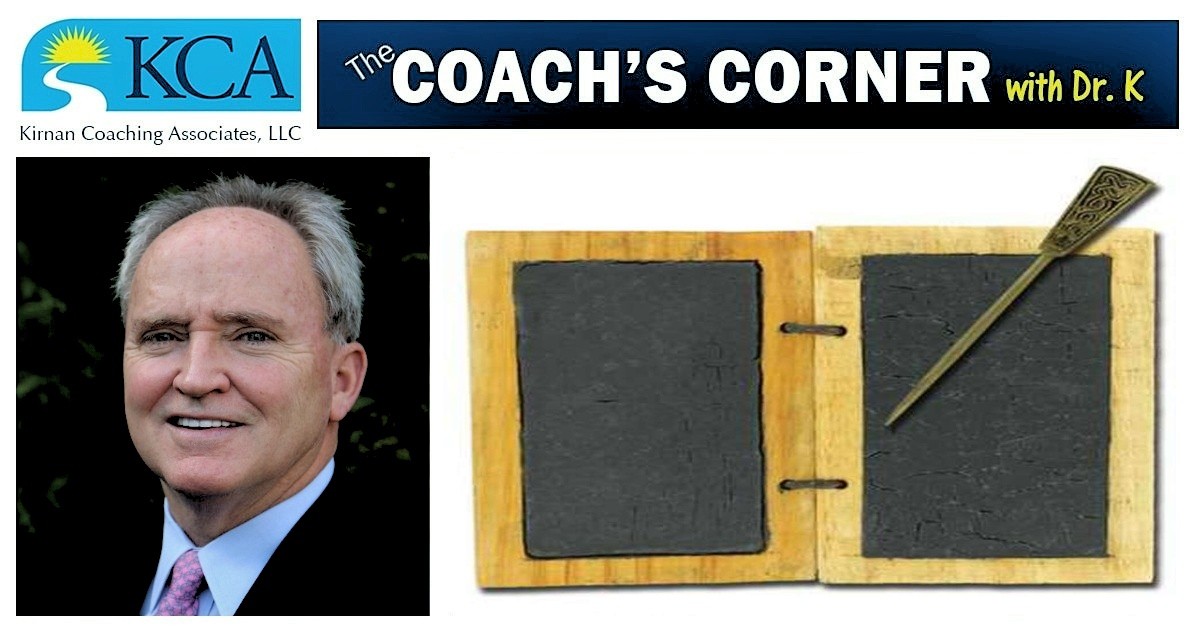“Oh, put me in Coach, I’m ready to play today; Put me in Coach, I’m ready to play today; Look at me, I can be Centerfield.” Lyrics for the song Centerfield, John Fogerty (1985)
This past Thursday was Opening Day in Major League baseball for all 30 teams, conjuring up some powerful memories we all share like the incredibly well-manicured green grass, the sounds of the ball being hit or caught, the smell of the hot dogs that permeate your favorite ballpark — mine is the Fenway Frank at Fenway Park. Every new baseball season brings us back to an earlier time in our own lives like playing catch in the backyard with our Dads or with our sons and daughters, playing for our Little League team and perhaps even coaching our children’s teams, the many family trips to the ballpark, and all those times we gathered around the TV set rooting and hoping that this would be the year our team would finally win the World Series.
In many ways, baseball is like that much anticipated first day of a new school year. Remember the excitement you felt not knowing who your new teacher would be, what friends would be in your class, or even where your assigned seat would be? There’s just something magical about the Opening Day in the baseball season and the imagery it connotes. It’s an opportunity for a new beginning, a chance for our favorite team to start all over again, and it’s a time for us to reconnect with those people who are important in our life. Over the years, Hollywood has produced some incredibly moving films about the impact baseball has had on our way of life like The Pride of the Yankees (1942), Bang the Drum Slowly (1973), The Natural (1984), Bull Durham (1988), Major League (1989), The Sandlot (1993), and Angels in the Outfield (1994) to name just a few. One movie – the 1989 classic Field of Dreams – captures in a beautiful way the dreams in all of us, even if it’s something we may not be able to capture in this life. It’s an incredibly touching story of a farmer Ray Kinsella who builds a baseball field on his farm in Iowa. The field becomes a magical place where dreams come true and it’s a movie that produced a memorable line often applied to business strategy “If you build it, they will come” and that memorable exchange between Ray and his father John Kinsella – John: “Is this heaven?” and then Ray’s answer: “It’s Iowa”.
There are so many memorable scenes in this beautiful movie but the one which touches our hearts perhaps like no other scene is at the end of the movie (SPOILER ALERT) where the main character Ray, played by Kevin Costner, conjures up a chance meeting with the Dad he really never knew. It’s a powerful reminder to all of us about the inherent attraction we feel for second chances in our life and the imaginary conversations we wish we could have with those we have lost in our life.
As I get older and take on different roles in my life, I have found myself thinking more and more about baseball in spiritual terms and how relevant this wonderful game is to that other game we all play in the real world called our life and career. Here’s just a sampling of some of those common elements:
Baseball and the Game of Life Requires Patience
A baseball game can be exhausting not just for the fan but also for the players who must toil through 162 games in a season. They play half of those games away from their home ballpark, they must adapt to whatever conditions are on the ground – the rain, the incredibly hot and humid weather, and sometimes even snow flurries in the early part of the season.
Then there are all the built-in delays that are part of the game – the batter stepping out of the batter box, the pitchout, the pickoff throw to first or second base, the pitching coach trotting out to the mound for a pep talk with the pitcher, the long commercials in between innings, and the position players in the field wondering if the ball is going to be hit to them. For me, there’s a painful memory from my 6th grade Little League Team Homestead Roofing where in the final inning of the championship game I misplayed a single up the middle and the ball went right through my legs and we lost the game 3-2. That mishap may help explain my lifetime love for my favorite team — the Boston Red Sox — and why years later I felt such a close bond with Bill Buckner!
Baseball is also one of the few games that we have in our culture that allows us to slow things down from the hectic, fast-paced, 24/7 life we find ourselves in today. Many of us would probably admit that some of the best times we ever had with our family, our friends, and our colleagues at work took place at a baseball game because we had a real opportunity to connect, to share, to enjoy all that is good in our lives. Slowing things down allows us to check in with ourselves and to take our pulse. The patience required in baseball is also a reminder that we need to be patient in our own lives. Some goals, especially the really important ones we set for ourselves may be more difficult to achieve than we had thought or perhaps require more time than we had planned on but slowing down could very well be the pause that refreshes. Slowing things down may also reinforce the potential rewards we envision by continuing to commit to the specific goals we may have set for our personal and professional development.
The Timeless Nature of Baseball and the Shared Goal of Getting “Home”
Baseball is truly a timeless game in that no one ever really knows when the game may end. It could be a rain-shortened event but even then you may have to sit in the stadium a couple of hours before the umpires decide to call the game. Or it could go a full 9 innings but if a lot of runs are scored by both teams it still might take 4-5 hours to complete. You could even get one of those extra inning classics like the major league record 25-inning affair between the Chicago White Sox and the Milwaukee Brewers in 1984, a game that took 8 hours and 6 minutes before the White Sox prevailed 7-6. But we know that the object of the game is to score more runs than the opposing team and scoring runs means you need to get “home” as in crossing home plate.
In a similar way, we don’t really know when our career or life may come to an end. But there’s always been something visually compelling to me about the batter beginning his “at bat” at home plate and then having to touch each base in getting back to home plate to score a run. After all, the batter faces some fairly big obstacles when he steps up for his turn at bat – will he get a good pitch to hit, can he at least get to first base, can he make it to second or third base without getting tagged out or doubled up on a line drive? All we know is that a great hitter in baseball is one who consistently hits .300 throughout their career and that player is usually rewarded with a multi-year contract that will pay him millions of dollars. Yet, that same .300 hitter is unsuccessful 7 out of every 10 times he comes to bat. It’s a healthy reminder that all of us struggle and yes, we even swing and miss. We all face fear and fall down. But, every time we fail — whether its losing a customer, failing to secure that new client, not getting the year-end evaluation, salary increase or promotion we were hoping for, not doing our best in a presentation, or maybe just not “showing up” in our personal life the way we would like to — we learn something new about ourselves. And, that doesn’t mean we cannot do better tomorrow, or next month, or next year. On any given day, anything can happen because the scoreboard always resets to 0-0 before any new game. Bob Feller, one of baseball’s all-time great pitchers for the Cleveland Indians said it best — “Every day is a new opportunity. We can build on yesterday’s success or put its failures behind and start over again. That’s the way life is, with a new game every day, and that’s the way baseball is”.
We see in baseball the game that is our own unique life and as a continual quest to find meaning and purpose in life. TS Elliott once said — “In my beginning is my end…home is where one starts from….In my end is my beginning.” So just as in baseball where the goal is to get home more than the other team, we have the power to find our own sense of home in our personal and professional lives and to define what home means for our own spirituality and the relationships that are most important to us. And just like our favorite baseball team, each of us is also part of a bigger team whether it’s our own family, our network of personal and professional friends, or the organization we currently work for or hope to work for at some point in the future. Each of us can be just like that fictional character Roy Hobbs in the mid-1980s classic The Natural where Hobbs summons all of his inner physical and emotional strength to find his own version of “home” by hitting one last home run for the New York Knights.
The Role of Sacrifice in Baseball and in Life
Both baseball and life involve the notion of sacrifice. In baseball, you are taught early on lots of important values like sacrifice and doing whatever is in the best interest of your team. As a youngster, I never really mastered the art of actually hitting the ball. I was always told “Jack, a walk is as good as a hit” so I would try and work the pitch count to get on base. Then there was the sacrifice bunt or the sacrifice fly, either of which could advance a runner and maybe even result in an RBI (Run Batted In). Since I couldn’t hit for beans, I learned to bunt the ball to get on base. You see I was pretty fast back in those days but soon the other teams in the league caught on to the point where the opposing 3rd baseman would literally stand about 10 feet removed from where I was in the batter’s box. It didn’t matter to me. Even though everyone watching the game knew I was going to bunt, I somehow convinced myself that I could still beat it out for a single. As you might surmise, that strategy didn’t work out so well for my batting average. There are also some players who have a knack for getting hit by a pitch (HBP) which might truly be the ultimate sacrifice you can make for your team. The HBP can involve some physical pain, especially if you get plunked on your back, your hands or God forbid your head.
How often do we have the self-awareness to realize the sacrifices we may be making for either our personal or professional fulfillment? Life and career involve many sacrifices but sometimes we are so in the moment we don’t even recognize it. I can’t tell you how many times I would be in a meeting or away on a business trip where the only thought in my head was how I couldn’t wait to get back home and be with my family. And, yet because of the nature of the demanding jobs I held, there would always come a point on a weekend – usually around 3PM on Sunday afternoons — where I would start drifting off and be consumed with thoughts of work — the presentation I had to make, the plane I had to catch, or the other projects just waiting and piling up on my desk. Does any of this resonate with you? I’ll bet it does. So a game like baseball that can slow things down and allow you to embrace the moment is an opportunity to reflect deeply on what’s really important in your personal and professional life.
Facing the Fear and Self-Limiting Beliefs We All Have
Finally, let me share some thoughts from one of my favorite baseball movies that my kids and I used to watch over and over with their friends. The movie — The Sandlot – like so many other so-called baseball movies — is really about so much more than baseball although I am sure I didn’t realize it when we first saw it back in 1993. It’s a movie about growing up for sure – about fitting in, finding your own way but it’s also about facing fear, something we all must do throughout life and how we address our own self-imposed beliefs. In the story, a group of young boys in the neighborhood play baseball on the sandlot which happens to be located next to a house that has the meanest and biggest dog the boys have ever seen and whose nickname is “The Beast”. They lose baseballs over the fence on a regular basis and the thought of climbing the fence to retrieve a lost ball is just too scary for them to contemplate. One day Scotty Smalls, the main character in the story, decides to take his stepdad’s Babe Ruth-autographed ball so the boys can play but unfortunately that ball becomes one of the more than 150 balls that end up over the fence with “The Beast”.
After many unsuccessful attempts to retrieve the ball, Scotty’s friend Benny has a dream where the Sultan of Swat himself — Babe Ruth — gives him some of the best advice anyone can give –“Everybody gets one chance to do something great. Most people don’t take the chance either because they’re too scared or they don’t recognize it when it spits on their shoes. This is your big chance. You shouldn’t let it go by”
How many times during our life or in our careers do we let important things go by without addressing them? How many times do we actually confront and face our fears? In the end (SPOILER ALERT), Benny summons up all of the energy he can by jumping over the fence, retrieves the ball and a hilarious chase scene ensues that takes them through town and ultimately back to the sandlot where the fence finally falls down on the “The Beast”. Benny and Scotty then knock on the back door of the owner’s house to tell him what had happened to the fence at which point he asks the boys — “Why didn’t you just knock on the door? I would have given you the ball”. There’s certainly a spiritual element here as well — Matthew 7:7 “Ask and it will be given to you; seek and you will find; knock and the door will be opened to you”. It’s incredible to me how a movie like this can capture in such a beautiful and heartfelt way the fears and challenges we all face no matter how young or old we may be and how we can face them head on.
I hope your favorite baseball team has a great season. Maybe you will find yourself humming along to the catchy tune from the John Fogerty hit single “Put me in coach, I’m ready to play today”. And remember, if your team starts out slowly, there’s always Yogi Berra’s famous words you can fall back on to keep on cheering for your team — “It Ain’t Over Till it’s Over”. And, if your team doesn’t win the World Series this year, no sweat, you can always “Wait Till Next Year” when this beautiful game called baseball will begin anew.
Wishing my fellow coaches, clients, and colleagues the gift of God’s abundant blessings, Dr. K







